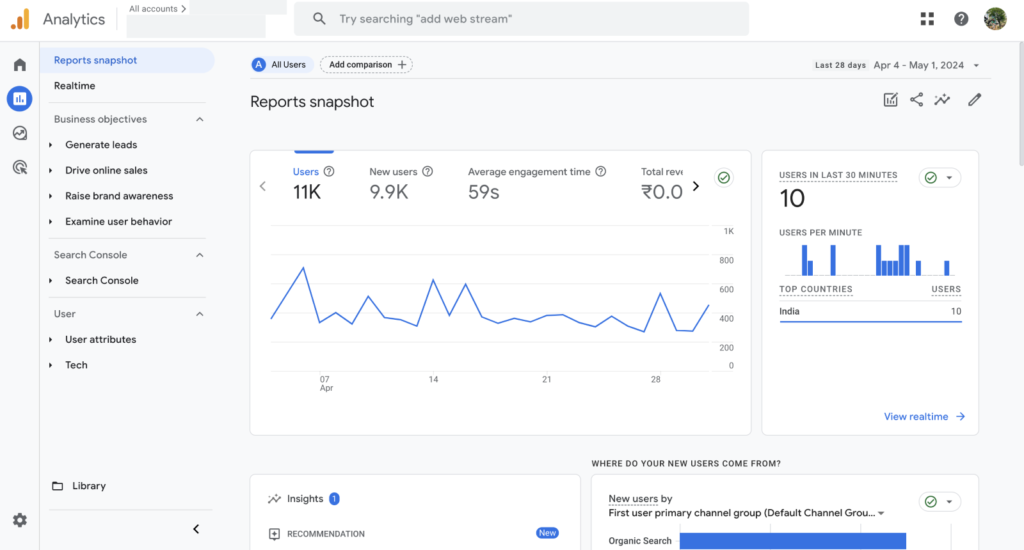You need to use data to run a successful business in the digital age, and Google Analytics is one of the best tools for this. Knowing how to use Google Analytics can change how you interact with your audience and make your online presence better, whether you are an advertiser, a small business owner, or a content creator. This article talks about what Google Analytics is and how it works, showing why it is a crucial tool for any digital plan.
What is Google Analytics?
Google Analytics is a free tool that tracks and reports all the people who visit websites. Since its release in November 2005, it has become one of the most popular digital tracking tools. It lets you look at a lot of information about the people who visit your website, giving you useful information that can help you make decisions about how to make your business successful.

How Does Google Analytics Work?
A JavaScript code that the website owner adds to every page of their site is how Google Analytics mostly works. This code tags every visitor to the site with a ‘beacon’ that sends information back to Google’s systems for processing.
Data Collection
Google Analytics uses cookies and JavaScript to track website usage and gather visitor information. Among this information are user engagement, session length, pages per session, bounce rate, traffic source, and more. Google assembles every interaction into what they call a ‘hit’ and sends it to their servers for processing.
Data Processing
When information reaches Google’s servers, it is processed and organized for easy use.In this step, Google Analytics organizes data based on the website owner’s settings like goals, funnels, filters, and groups. After being processed, this data can be found in various kinds of reports.
Data Reporting
After processing, the information is made available through the Google Analytics dashboard. Multiple reports can be added to the dashboard so that data is shown based on specific metrics, dimensions, and periods. Users can see reports about the demographics of their viewers, how they found the site, how they behaved on it, and how many people converted. This helps them figure out how people use their site.

Read about other tracking tools here
Key Features of Google Analytics
- Real-Time Reporting: Instantly see which pages visitors access and their actions on your site.
- Audience Insights: Learn about the age, gender, location, interests, and technology (devices, browsers, etc.) of the people who visit your website.
- Acquisition Reports: Discover where your users originate from, including search engines (organic traffic), social media, referrals from other websites, or direct visits.
- Reports on behavior: Analyze user behavior, most-visited pages, and navigation patterns on your site.
- Conversion Tracking: Set goals to monitor actions like purchases or newsletter signups and understand your conversion paths.
Benefits of Using Google Analytics
- Better User Experience: Understanding site usage helps you enhance usability and content, improving overall user experience.
- Optimized Marketing Strategies: Data on how visitors find and use your site can refine your marketing to target the right audience with the right message.
- Higher Conversion Rates: Understanding the user journey helps you optimize conversion paths and tailor website content to better meet user needs.
- Data-Driven Decisions: Having access to detailed analytics takes the guesswork out of website management and growth by letting you use real user data to make strategic decisions.
Google Analytics is a powerful tool that reveals your website’s performance and user interactions. Careful analysis of the data from Google Analytics can improve a company’s digital strategy, user engagement, and conversion rates. Google Analytics is an essential tool for digital marketers and business owners. Whether starting fresh or improving an existing website, it will assist you in achieving online success.
At eRGADX, we methodically plan our campaigns by utilizing innovative tools like Google Analytics. This allows us to improve our campaigns’ performance and make decisions driven by data, which contributes to your campaign’s success.
To plan your campaign, contact us immediately! Visit our Contact Us Page!


